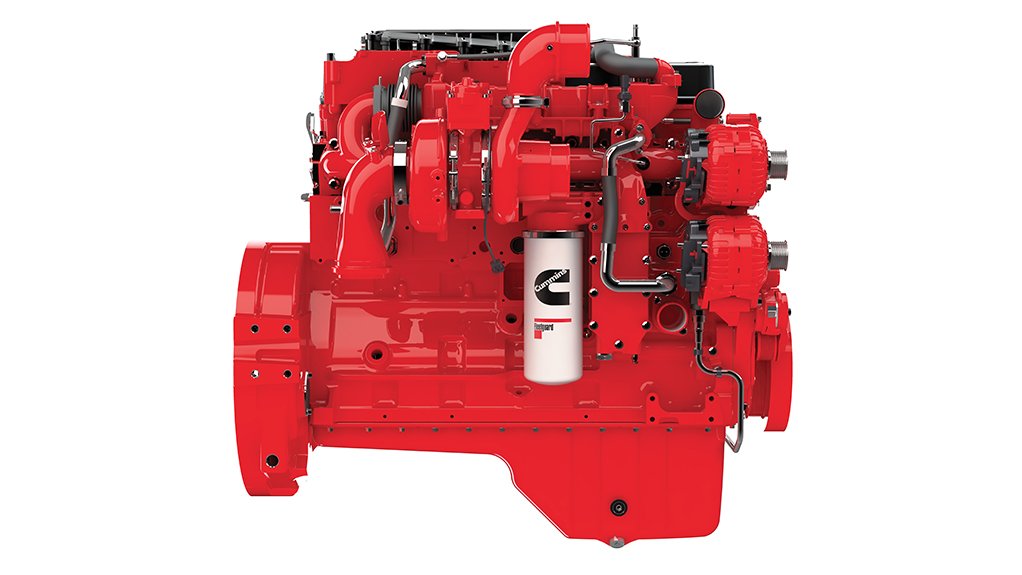The Role of Engines for Africa in Boosting Local Industries and Infrastructure
Understanding the Long-Term Advantages of Investing in Engines for Africa for Future Growth
The possibility of spending in engines for Africa-- spanning education and learning, technology, and facilities-- offers a compelling chance for long-lasting development and security. Such investments not only pave the method for lasting financial diversification however likewise strengthen strength versus international challenges.
Economic Security and Resilience

Furthermore, resilience makes it possible for African countries to adjust to altering global characteristics, including environment adjustment and technical improvements. By prioritizing financial diversity, countries can reduce dependence on a narrow series of industries, thus mitigating threats connected with financial declines. Financial investment in facilities, education and learning, and innovation further reinforces this resilience, encouraging communities to grow in spite of obstacles.
Applying sound financial plans and reinforcing monetary institutions are additionally vital strategies for enhancing financial stability. These steps can facilitate accessibility to credit rating, enhance cost savings prices, and advertise efficient resource allotment. Eventually, a durable financial framework lays the foundation for sustainable advancement, making certain that Africa can profit from its tremendous potential while preparing for future uncertainties.
Job Creation Opportunities
A lively work market is crucial for driving lasting development and lowering poverty in Africa. Buying engines for Africa, especially in markets such as farming, modern technology, and production, can significantly improve task production chances across the continent. As brand-new industries arise, they necessitate a labor force outfitted with diverse abilities, leading to raised work prospects for local populaces.
These investments not just develop straight job opportunities yet additionally stimulate ancillary markets. As an example, a blossoming manufacturing sector can cause heightened need for logistics, maintenance, and supply chain administration roles. This multiplier effect enhances the overall work landscape, fostering a durable ecosystem where numerous markets grow jointly.
In addition, boosted task chances can promote entrepreneurship, as people with secure earnings frequently seek to buy their very own companies. This entrepreneurial spirit can supply added employment opportunities, adding to a dynamic economic situation.
Eventually, by concentrating on job creation through critical financial investments, Africa can harness its potential, making sure that economic development converts into tangible benefits for its people - engines for Africa. In doing so, the continent can develop a lasting future that focuses on both financial development and social upliftment

Enhancing Education And Learning Systems
Routinely enhancing education and learning systems is crucial for gearing up Africa's youth with the skills required to flourish in a quickly progressing work market. A durable academic framework should prioritize both scholastic excellence and useful skill development. By lining up educational programs with the needs of markets, schools can much better prepare trainees for future employment possibility.
Investment in teacher training programs is important to enhance academic high quality. Well-trained instructors influence trainees and foster important reasoning, imagination, and problem-solving capacities. Integrating technical and occupation training into the education and learning system can supply students with substantial abilities that meet market demands, thus lowering youth unemployment prices.

Moreover, enhancing access to education, especially in rural and underserved locations, is essential. Strategies such as mobile knowing platforms and community-based education efforts can connect the space, making certain that all young people have the possibility to prosper (engines for Africa). Ultimately, a versatile education system will be a foundation for Africa's sustainable development and development
Advancements in Technology
Utilizing the power of technology is transforming different fields throughout Africa, leading the method for advancement and development. The integration of advanced technologies such as synthetic intelligence, big information, and the Internet of Things (IoT) is revolutionizing sectors, boosting performance, and driving economic growth. These advancements are making it possible for organizations to enhance procedures, improve decision-making procedures, and promote an extra competitive market environment.
In farming, as an example, my sources precision farming methods powered by data analytics are optimizing crop returns and resource management. The financial market is seeing a rise in mobile banking and fintech remedies, which are boosting financial incorporation and offering vital services to underserved populations. The health care industry is profiting from telemedicine and digital health and wellness documents, improving accessibility to top quality care throughout remote areas.
As innovation remains to advance, its effect on education is likewise substantial, with e-learning platforms broadening instructional chances. By buying these technological innovations, African nations can unlock brand-new economic opportunities, create jobs, and raise living criteria. Embracing advancement is essential for sustainable growth, making certain that Learn More Here Africa remains competitive on the global stage.
Facilities Advancement Influence
The quick improvements in technology are closely intertwined with the urgent requirement for framework growth throughout Africa. As countries make every effort to enhance their economic landscapes, investing in robust facilities systems comes to be extremely important. Effective facilities-- making up transport networks, energy grids, and interaction systems-- assists in better accessibility to resources and markets, ultimately reinforcing efficiency and financial development.
The effect of infrastructure growth prolongs beyond immediate financial benefits. Enhanced facilities fosters a setting favorable to development, attracting both international and local financial investments.
Additionally, tactical financial investments in infrastructure can minimize the dangers related to environment change, as resistant systems are important for adjusting to environmental challenges. By prioritizing lasting infrastructure advancement, African countries can guarantee lasting growth and security. Ultimately, the interaction in between technological improvements and infrastructure growth is crucial for recognizing the continent's complete potential and accomplishing lasting advancement objectives.
Conclusion
In final thought, purchasing engines for Africa-- encompassing innovation, infrastructure, and education-- provides substantial long-lasting benefits necessary for lasting development. Such strategic financial investments foster economic stability and resilience, create job chances, and boost education systems, ultimately leading to developments in innovation and infrastructure development. The advancing result of these efforts not just enhances market gain access to and resource circulation yet additionally placements African countries to thrive and adjust in a significantly vibrant worldwide landscape.
Economic stability and strength are critical components for sustainable investigate this site growth in Africa, specifically as the continent seeks to harness its large resources and capacity. By prioritizing financial diversity, countries can reduce dependence on a slim array of markets, thus mitigating threats connected with economic downturns. Inevitably, a durable economic structure lays the foundation for sustainable advancement, making certain that Africa can exploit on its immense potential while preparing for future unpredictabilities.
Reliable facilities-- comprising transport networks, energy grids, and interaction systems-- assists in better accessibility to markets and resources, eventually bolstering efficiency and financial growth.
Such strategic financial investments foster financial stability and strength, produce task opportunities, and improve education and learning systems, eventually leading to advancements in innovation and infrastructure advancement.